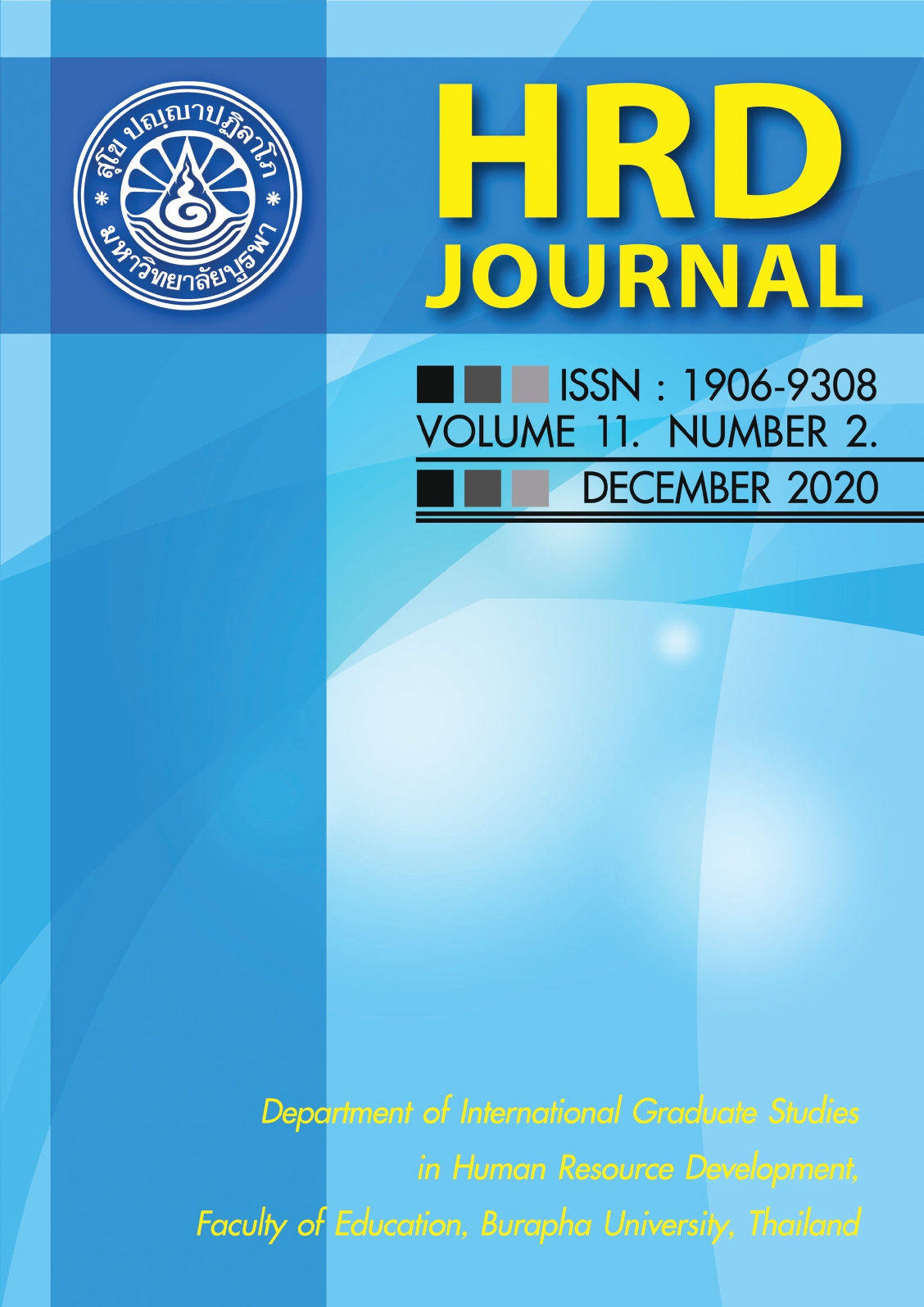Employee Retention of First Line Managers of Thailand’s Food Industry
Keywords:
Employee Retention, First Line Manager, Food IndustryAbstract
Human resources are the essential part of every organization. Currently, most organizations have shifted towards the technology-driven trend. However, human resources are still considered as a required factor to operate technology. As a result of technological improvement in each and every area of the economy, it creates more opportunities for businesses and it is the matter of human resources of organizations to catch these opportunities. There have been more challenges in terms of managing resources of the organizations because not only must the management of resources be conducted, but retainment of all resources must also be well-organized. Acquiring skilled personnel is not only the important job of any organizations. Securing them so that they will not leave the organizations is also crucial as employees’ knowledge and skills express companies’ abilities to be economically competitive. Therefore, companies need to satisfy their employees which is considered another challenge for the companies nowadays. Taking into account the issue of retention to any organization, this study aims to review the various available literature and research work on employee retention and the factors affecting employee retention and job satisfaction among the employees.
References
Becker, B.& Huselid, M.A. (1999). High perfor-mance work systems and firm performance: A synthesis of research and managerial implications. Research in Personnel and Human Resource Management, 16, 53-101.
Dipietro R. B. and Condly (2007), Employee Turnover in the Hospitality Industry: An Analysis Based on the CANE Model of Motivation. Journal of Human Resources in Hospitality & Tourism, 01; 6:1-22.
Iqbal, A. (2010) Employee Turnover: Cause, Consequences and Retention Strategies in Saudi Organizations. The Business Review, Cambridge.
Kurb, M. (2011). The Changing Paradigm of Consulting: Adjusting to the Fast-Paced World. Information Age Publishing, Inc.
Marsden, P.V. (1994), The hiring process. American Behavioral Scientist, Vol. 37 pp.979- 91.
Michaels & Handfield & Axelrod, (2001) The War For Talent. McKinsey & Company, Inc.
Mckeown J., Le. (2002). Retaining Top Employee. Mcgraw Hill.
Mugenda, M. and Mugenda, G. (2003), Research Methods, Quantitative and Qualitative Approaches, Kenya.
Mitchell, B. (2017). The book of HR, Revised and Update Edition. The Career Press.
Phillips, J. & Connell, O. (2003). Managing Employee retention. Franklin Covey.
Suzanne, D. (1999). Keeping your Valuable Employee: Retention Strategies for Your Organization’s Most Important Resource. John Wiley & Son, Inc.
Downloads
Published
How to Cite
Issue
Section
License
Copyright@HRD Journal, Burapha University






